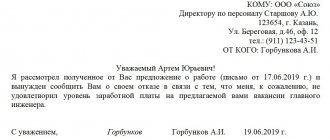“Do you know what a compromise is? – Is this when they circumvent the law? “No, when they give in to each other and thus come to an agreement.”
Harper Lee. To Kill a Mockingbird
Disagreements...Claims...Court...Decision (in favor of one of the parties)...Enemies. Can this be avoided? Yes, and even if pre-trial reconciliation measures do not produce results, in court, at any stage, up to enforcement proceedings, it is possible to conclude the case on terms mutually acceptable to all parties by signing a settlement agreement.
A settlement agreement is a civil law transaction, possible in cases of litigation, which comes into force immediately after approval by the court, on the terms agreed upon by the parties, without the right to terminate it or invalidate it (you can only appeal the ruling on approval of the settlement agreement).
Due to the legal position of the Constitutional Court of the Russian Federation, set out in Determination No. 1-O dated February 24, 2004, “a settlement agreement is an agreement of the parties to terminate a dispute on the basis of the voluntary settlement of mutual claims and approval of mutual concessions, which is one of the procedural means of protecting subjective rights ."
Its benefits are obvious, even if the plaintiff is 100% confident in the decision and the availability of all the evidence, a compromise with the defendant gives a greater chance of execution of the decision, i.e. not only the “actual” win in court, but also the actual recovery. The possibility of maintaining partnership relations, independent and possibly more fair distribution of legal costs (in this case, 50% of the amount of the state fee is returned to the plaintiff), any concessions to each other, acceleration of execution, getting rid of the “debtor” status with seizure of property, fines, etc. , the possibility of replacing the obligation to pay the debt with non-property obligations of the debtor - all these are the advantages of concluding a settlement.
The settlement agreement can be announced orally and entered into the minutes of the court session (the parties sign the minutes) or drawn up in writing and signed by the parties (representatives must have special powers).
The settlement agreement has legal force only after approval by the court (FAS of the West Siberian District in Resolution dated July 22, 2008 N F04-4287/2008(8005-A70-9), F04-4287/2008(8012-A70-9)
The consequences of concluding a settlement agreement are the termination of proceedings in the case, the impossibility of going to court on the same dispute, and the possibility of forced execution on the terms determined by the settlement agreement.
The settlement agreement is approved by the relevant court in charge of the case (first, appellate or cassation instances). A settlement agreement cannot be approved at a preliminary hearing (Information letter of the Presidium of the Supreme Arbitration Court of the Russian Federation dated August 13, 2004 N 82, Resolution of the Plenum of the Supreme Arbitration Court of the Russian Federation dated July 18, 2014 N 50 “On the reconciliation of the parties in the arbitration process”), it is necessary to proceed to the main court hearing. When concluding a settlement agreement at the stage of execution of a judicial act, it is approved by the court of first instance.
Grounds for challenge
The settlement agreement can be challenged:
- if the court ruling was made with procedural violations, but the agreement has already entered into force;
- if the document was signed by an unauthorized person;
- under enslaving terms of the transaction, which the initiator of the challenge could not have previously known about;
- when the agreement, due to circumstances beyond the control of the parties, is declared unenforceable.
- if third parties object to its conclusion and implementation, including when it is expected that they will incur significant losses.
- if the agreement is contrary to law.
- When regulatory authorities oppose compromise deals. For example, the FAS may regard this as a commercial conspiracy (relevant in the arbitration process).
- if the agreement is recognized as an imaginary transaction aimed at unjust enrichment and obtaining benefits bypassing the obligations of the parties;
- if the terms of the document are socially unfair. For example, in family law disputes, a case in court may end with a mutual agreement to receive a specific amount of alimony that does not meet the interests and needs of a minor child.
- due to substantive inaccuracies - especially regarding the division of property, including real estate. For example, the agreement simply indicates the address of the apartment and does not provide its other identifying features. Then Rosreestr will refuse state registration, and it will no longer be possible to file a lawsuit again (in disputes about the division of inheritance). The heir who received the apartment must appeal to the cassation court and demand the cancellation of the agreement.
There may be other grounds for challenging a document, which depend on the specific civil law relations between the parties.
Is it possible to terminate an amicable or notarial agreement on the division of property?
Divorce is not always accompanied by division of property through the court. If the spouses have maintained a good relationship, they try to resolve all material issues peacefully. For this purpose, a special document is concluded - a settlement agreement.
The question of whether it is possible to appeal a settlement agreement is asked to lawyers quite often. Due to inexperience or under the influence of emotions, people may agree to something that infringes on their interests. For such situations, cancellation of the settlement agreement is provided.
Who has the right to challenge?
Challenging the agreement within the framework of a trial is allowed by its participants. Claims may be initiated by counterparties, as well as third parties whose interests are affected by the agreements of the litigating parties. They can be citizens who have the right to use the disputed object - for example, an apartment. It can be transferred to the party that abuses its rights, which directly affects the interests of the persons registered in the real estate - for example, a citizen convicted of an intentional serious crime may be transferred to the apartment in which the injured party remains to live.
Most settlement agreements are canceled due to commercial interests and due to their unenforceability, as well as in a situation where citizens begin to abuse their rights, for example, by splitting an apartment where minors live into small shares. When going to court, the plaintiff must specifically indicate what the violations were by the participants in the previous agreement, and how the contents of the document directly affect the rights of the plaintiff.
Statement of claim for termination of agreement
The statement of claim is written taking into account the requirements specified in Art. 131 Code of Civil Procedure of the Russian Federation. It must contain the personal data of both parties, a list of attached documents and the name of the judicial authority. It is equally important to describe the subject of the problem in detail, avoiding unnecessary details.
How to compose
The statement of claim must be drawn up in accordance with established standards. All facts described in it must be supported by evidence in the form of official papers, audio or video files.
When drawing up a claim, you need to consider the following:
- It is advisable to describe the situation in detail, referring to the documents attached to the application.
- It is necessary to mention situations in which the agreement violated the rights of the plaintiff.
- The text of the application must contain a requirement to cancel the agreement or make certain changes to it.
- You should check the text of the application several times for errors and repetitions. It is not recommended to use figures of speech with double meaning.
Who can file a claim and where?
A claim for invalidation of the settlement agreement may be filed by the direct participants in the transaction. They are not only former spouses, but also the notary who certified the document. According to statistics, they practically do not use this right. In addition, third parties affected by the transaction may also file a claim. For example, a co-owner of a property or a bank.
According to Art. 28 of the Code of Civil Procedure of the Russian Federation, a statement of claim must be filed with the district or city court at the place of residence or registration.
Termination procedure and its consequences
The settlement agreement is approved based on the ruling of the court. If it violates the rights of one of the parties, then citizens have the right to file a claim in the appellate or cassation instance.
If the ruling reveals significant violations of the law, the judge cancels it and sends the case for a new trial. It is not the written agreement that needs to be challenged, but the determination by which such a document was approved.
| A private complaint must be filed within 15 days after the court's ruling. You can appeal to the cassation office within 6 months from the date of the ruling. |
Creditors file a complaint, including when the agreement is recognized as a transaction aimed at deliberately reducing the bankrupt’s property mass.
Basic concepts in the law.
A settlement agreement is, in fact, an agreement on an amicable solution to a problem. When two disputing parties find a compromise and, without bringing the matter to court (pre-trial) or during the trial, resolve the dispute peacefully.
This procedure is possible in civil, arbitration and enforcement proceedings.
How to apply:
- In arbitration and civil proceedings, a settlement agreement is concluded by the plaintiff and the defendant, the court only approves the document.
- In enforcement proceedings, the disputing parties are the debtor and the creditor, as the document states, there is no explanation in the law.
- In bankruptcy, the document is signed by the debtor and his creditors, and the arbitration court must approve it during the hearing.
The very fact of signing automatically voids the court case, bankruptcy or enforcement proceedings. But the consequences in each specific case are different for all parties to the agreement.
Important! Refusal by the plaintiff or defendant from the settlement agreement is a natural course of events.
No one, no one can be forced to sign if something is not satisfactory in the global deal. The court can also only recommend concluding a settlement agreement if it sees that the controversial situation can be resolved simply.
In order for the settlement agreement to suit everyone, it will be necessary to make concessions, develop measures that would suit everyone, and lower the requirements somewhere.
A categorical refusal to even consider this option indicates a firm reluctance of the plaintiff or defendant to negotiate. Also, the defendant delays the trial in order to obtain a delay in execution.
How to write a statement.
Before the start of the trial, a statement in case of refusal of a settlement agreement is not required to be written, just as at the time of the proposal to draw up a document during the trial.
At the same time, neither the plaintiff nor the defendant must explain the course of their reasoning and actions; drawing up a settlement agreement is voluntary.
If the agreement has already been signed.
It’s another matter if a settlement agreement is signed, the terms are defined, and one of the parties abruptly refuses.
Here according to Part 2, Art. 142 of the APC, a writ of execution under MS can be issued if a person refuses to voluntarily execute what was signed.
Important! You cannot refuse an agreement, but the court cannot force you to enforce it either.
To continue the process and force the debtor to answer, it is necessary for the person who entered into the settlement agreement to write a petition, and on its basis the court will issue a writ of execution.
Settlement agreement approved by the court.
appointed by the court
Contents of the statement
The application must contain:
- name of the court;
- information about the subjects of the agreement - indicating their personal information;
- a description of the contents of the agreement and what exactly the violation of the rights and legitimate interests of the plaintiff is.
- a list of financial and other documentation on which the party bases its claims.
- Date and signature of the application. A settlement agreement has the force of an executive document. It can be enforced. If the counterparty refuses to fulfill its obligations, then the parties have the right to file claims through litigation. The claim must be filed in accordance with the rules of Art. 131-135 Code of Civil Procedure of the Russian Federation.
For approval of a settlement agreement, the following conditions are required:
1. Appearance at a court hearing or a written statement with a request to consider the issue in the absence of a party (Resolution of the Presidium of the Supreme Arbitration Court of the Russian Federation dated 09/08/2009 N 17447/08)
2. Required powers of a person to sign a settlement agreement:
Resolution of the Ninth Arbitration Court of Appeal dated August 30, 2013 N 09AP-24454/2013-GK in case N A40-137268/12 “it does not follow that the persons who signed the settlement agreement have the authority to conclude a settlement agreement, since the names of the persons who signed the settlement are not indicated settlement agreement, and their official position”, Appeal ruling of the Moscow City Court dated January 10, 2013 in case No. 11-454 “at the time of signing the settlement agreement, the plaintiff’s representative by power of attorney did not have the right to perform procedural actions on behalf of the plaintiff due to the cancellation of the power of attorney”)
3. Inadmissibility of amendments to the text of the settlement agreement by the court
The law does not provide for the possibility of approving a settlement agreement in part, changing or excluding any conditions from the settlement agreement. Consequently, the court, when considering the issue of approving a settlement agreement, does not have the right to approve such agreement in part, change or exclude from it any conditions agreed upon by the parties. At the same time, the court has the right to invite the parties to exclude from the settlement agreement certain conditions that are contrary to the law or violate the rights and legitimate interests of other persons (Resolution of the Plenum of the Supreme Arbitration Court of the Russian Federation dated July 18, 2014 N 50 “On the reconciliation of the parties in the arbitration process”)
Also, the court, not being a party to the settlement agreement, does not have the right to explain the terms of the settlement agreement (Appeal ruling of the Moscow Regional Court dated June 10, 2013 in case No. 33-12475/2013 “the parties themselves determine the conditions under which they enter into a settlement agreement, therefore, the conditions agreements cannot be unclear to the parties")
4. Mandatory resolution of the issue of distribution of legal costs
The parties have the right to determine for themselves how court costs will be distributed (50% of the state fee, representation expenses...), or this issue is resolved by the court Resolution of the Federal Antimonopoly Service of the Moscow District dated December 14, 2009 N KG-A41/12908-09 in case N A41-24934/09
Procedural legislation does not impose strict requirements on the terms of a settlement agreement. The Civil Procedure Code of the Russian Federation contains a minimum of rules devoted to this issue, although the Arbitration Procedure Code of the Russian Federation (Chapter 15) regulates the procedure more fully.
The settlement agreement must contain mandatory conditions, in the absence of which it will not be approved: information agreed by the parties on the conditions on which it is concluded (for example, the Resolution of the Federal Antimonopoly Service of the Volga District dated 05/06/2013 in case No. A57-14898/2012 indicates “the contested settlement agreement does not contain conditions on mutual assignments of rights and obligations of the persons who signed it); on the specific obligations of the parties to each other, the timing and extent of their execution (Resolution of the Ninth Arbitration Court of Appeal dated May 22, 2013 N 09AP-12198/2013 in case N A40-38083/10-101-165B “does not contain provisions on the procedure and timing of execution obligations of the debtor in monetary form")
The absence of certain conditions does not in any way affect the approval of the settlement agreement. And it can be included at the request of the parties: conditions on methods of payment, debt restructuring, and other conditions that do not contradict federal law.
The main rule regarding the validity of a settlement agreement, which cannot be changed by agreement of the parties, is that the terms of the settlement agreement must not contradict the law, as well as violate the rights and legitimate interests of other persons (clause 6, article 141 of the Arbitration Procedure Code of the Russian Federation, clause 2, article 39 of the Civil Procedure Code RF)
Other features
The share owner of the property, the mortgagee, has the right to apply for cancellation. He files a claim in the general manner, and also presents documents confirming the existence of collateral obligations. The number of copies of the claim must be equal to the number of participants in the process + 1 copy for the court. Any documents on which the initiator of the process substantiates his demands can be submitted to the claim.
The settlement agreement is terminated by a court ruling. He also has the right to indicate what actions the parties are obliged to perform: transfer property, refrain from performing certain actions, etc. If the parties refuse to return the property, then it will be necessary to initiate enforcement proceedings and act within the framework of Federal Law No. 229 “On Enforcement Proceedings”.
Types of reconciliation
One of the tasks of legal proceedings is to respect the interests of the parties, society and the state, therefore judges help ensure that the dispute is resolved in favor of both parties, without violating anyone’s rights. The possibility of ending the case through a conciliation procedure is legislatively enshrined in Chapter 14.1 of the Civil Procedure Code of the Russian Federation (hereinafter referred to as the Code of Civil Procedure of the Russian Federation).
Reconciliation must be voluntary, mutual, and not affect the interests of others. The final decision after conciliation procedures (negotiations, discussions) may be one of the following options:
- waiver of claims by the plaintiff (full or partial);
- recognition of claims by the defendant (full or partial);
- refusal of a complaint (appeal, cassation, supervisory);
- conclusion of an act of reconciliation.
Instructions
Necessary:
- Preliminarily study the contents of the settlement agreement and check the powers of the parties who approved it.
- Identify material and procedural violations that are possible when the court issues a ruling to approve an agreement between the parties.
- Prepare a claim in a court of general jurisdiction - indicate specific grounds on which the agreement should be declared invalid.
- Attach to the claim all documents on which the parties' claims are based.
- In a difficult situation, seek the support of a competent specialist.
It is possible to cancel an agreement duly approved by the court in exceptional cases, since it is assumed that when drawing up a “settlement” procedural opponents act reasonably and understand the meaning and all the consequences of their legally significant actions.
Liability for failure to comply with a settlement agreement
A settlement agreement is the same documentary act as a decision or determination on a claim. It is approved by the court and is mandatory for all parties to the process, as well as for government bodies.
In case of non-fulfillment, the same sanctions apply as those provided for non-execution of a court decision: the second party can apply to the court or the bailiff service for a writ of execution. In addition to forced execution, violation of a judge’s act may entail the collection of fines and penalties, as well as an enforcement fee for the work of bailiffs of 7% of the amount (but not less than 1,000 rubles from an individual or individual entrepreneur, and 10,000 from an organization).







